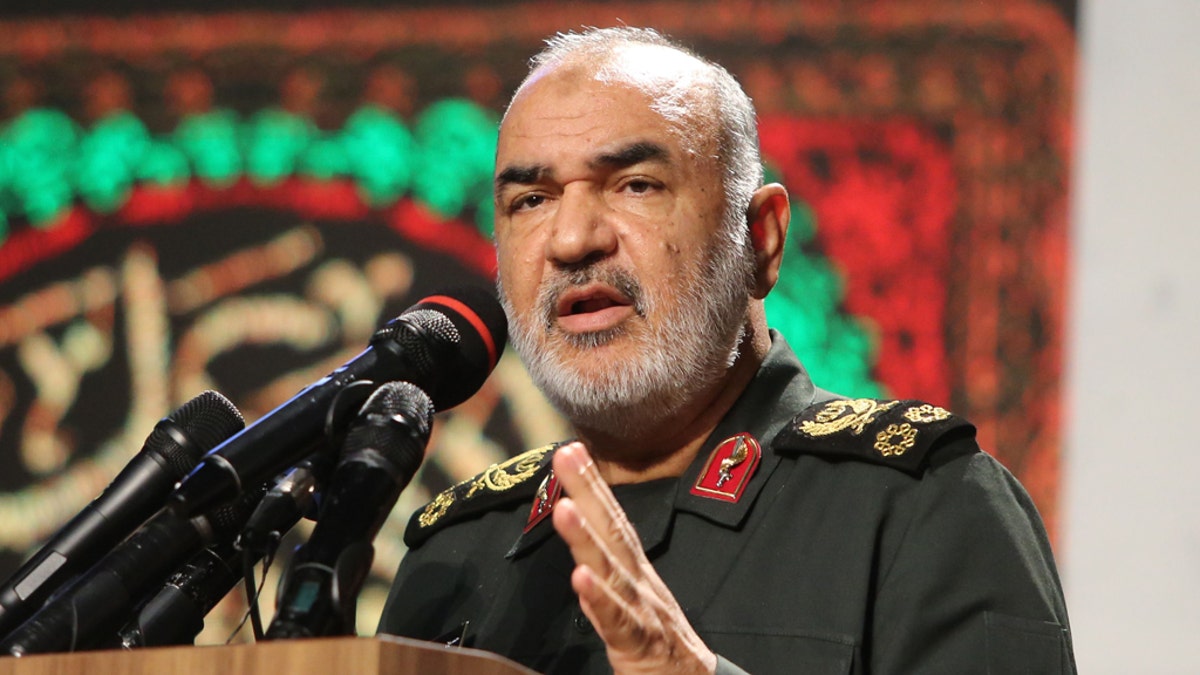Preliminary antibody testing shows coronavirus may be far more widespread than previously believed
Insight from Dr. Neeraj Sood of the USC Price School of Public Policy and Fox News medical contributor Dr. Marc Siegel.
Get all the latest news on coronavirus and more delivered daily to your inbox. Sign up here.
The commander of Iran’s Revolutionary Guard Corps unveiled a machine he claimed could detect the coronavirus within a few seconds, a device that appears to resemble one used in a long-running scam.
Maj. Gen. Hossein Salami, who took over from Qassem Soleimani after he was killed in a U.S. drone strike in January, hailed the “unique technology” during a ceremony last Wednesday.
Salami claimed the device can detect someone with coronavirus in five seconds or within 300 feet.
“This is an amazing scientific technique that has been tested across various hospitals,” he reportedly said. "The technology could set the basis for the detection of all kinds of viruses."
CLICK HERE FOR FULL CORONAVIRUS COVERAGE
But when asked about the device by a reporter for a Turkish news agency, a spokesman for Iran’s health ministry said the device had not been approved by official bodies. Separately, a spokesman for Iran’s President Hassan Rouhani also warned citizens of “false advertisements for vaccines, drugs or innovative detection kits.”
The device appears to resemble one that was peddled by fraudsters as a “bomb detector” across the Middle East over the past decade, according to BBC News reporter Shayan Sardarizadeh. The tweets were first cited by Vice News.
Iran on Monday began reopening parts of its sanctions-choked economy, despite being one of the countries hardest hit by COVID-19.
Stores from high-end malls to the meandering alleyways of Tehran's historic Grand Bazaar opened their doors, though the government limited their working hours until 6 p.m. Restaurants, gyms and other locations remain closed.
On Monday, Kinoush Jahanpour, a health ministry spokesman, updated the country’s official death toll to 5,209, with more than 83,500 confirmed cases. But there are suspicions the real number in both cases is far higher.
Mosques and shrines remain closed, even with the holy Muslim month of Ramadan approaching later this week.

Iranian Revolutionary Guards commander Major General Hossein Salami (AFP via Getty)
Rouhani said some sites will likely open May 4, around 10 days into Ramadan, although Supreme Leader Ayatollah Ali Khamenei, who has the final say, has already suggested mass gatherings may be barred throughout the month.
CLICK HERE FOR THE FOX NEWS APP
Elsewhere on Monday, Mohammad Javad Zarif, Iran’s foreign minister, used a meeting with Syrian President Bashar Assad to call on the U.S. to lift sanctions imposed on both countries.

